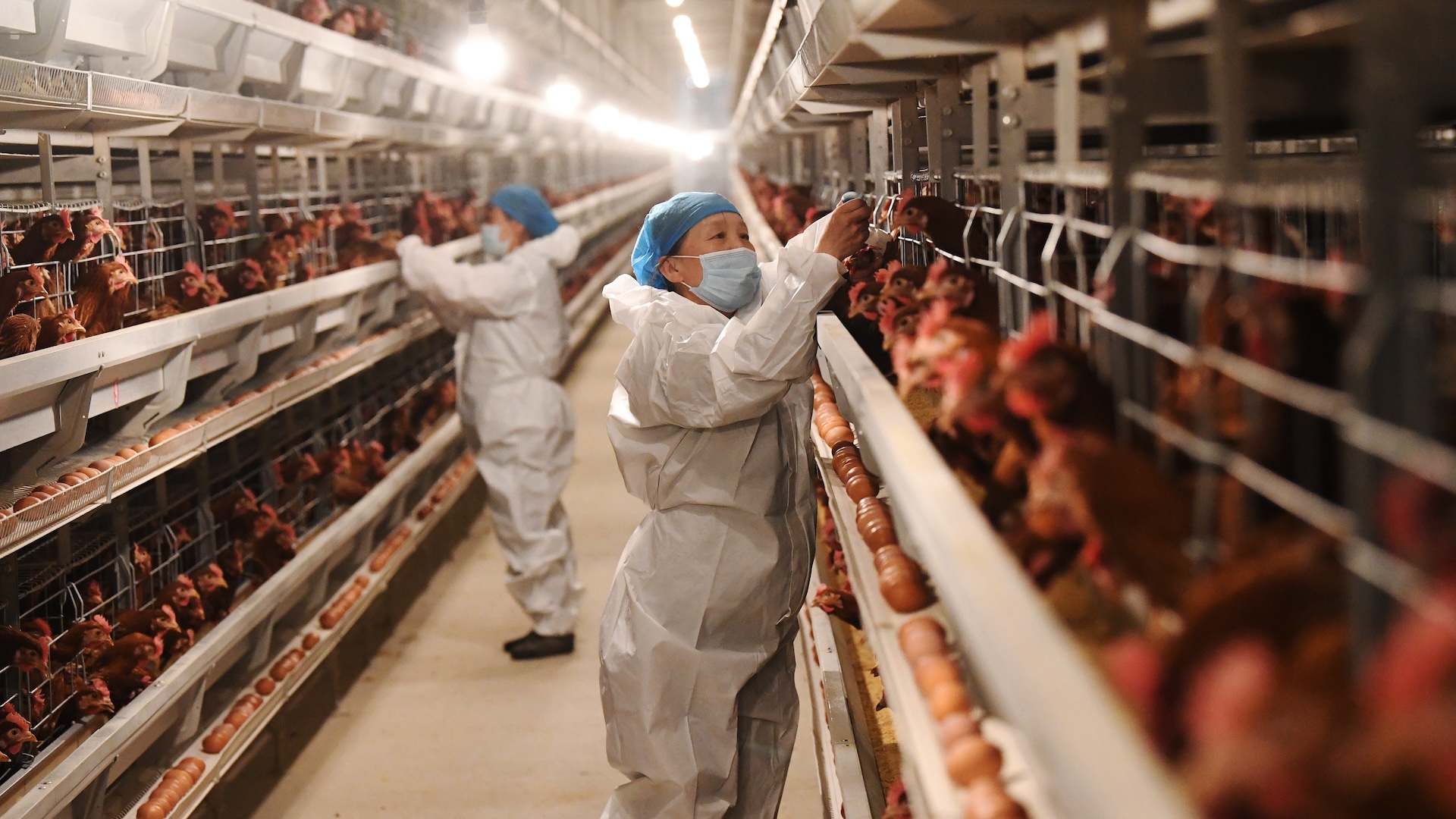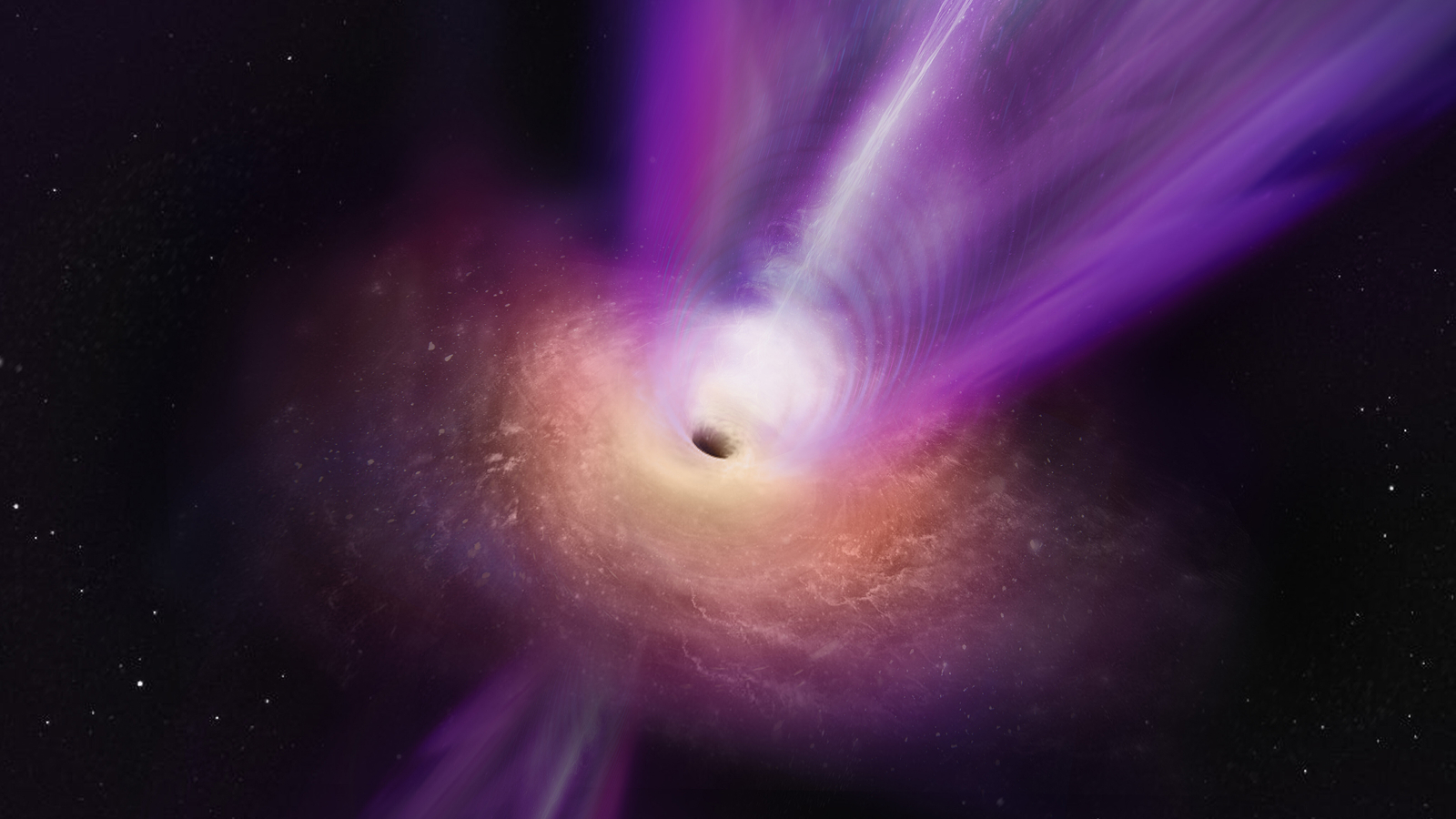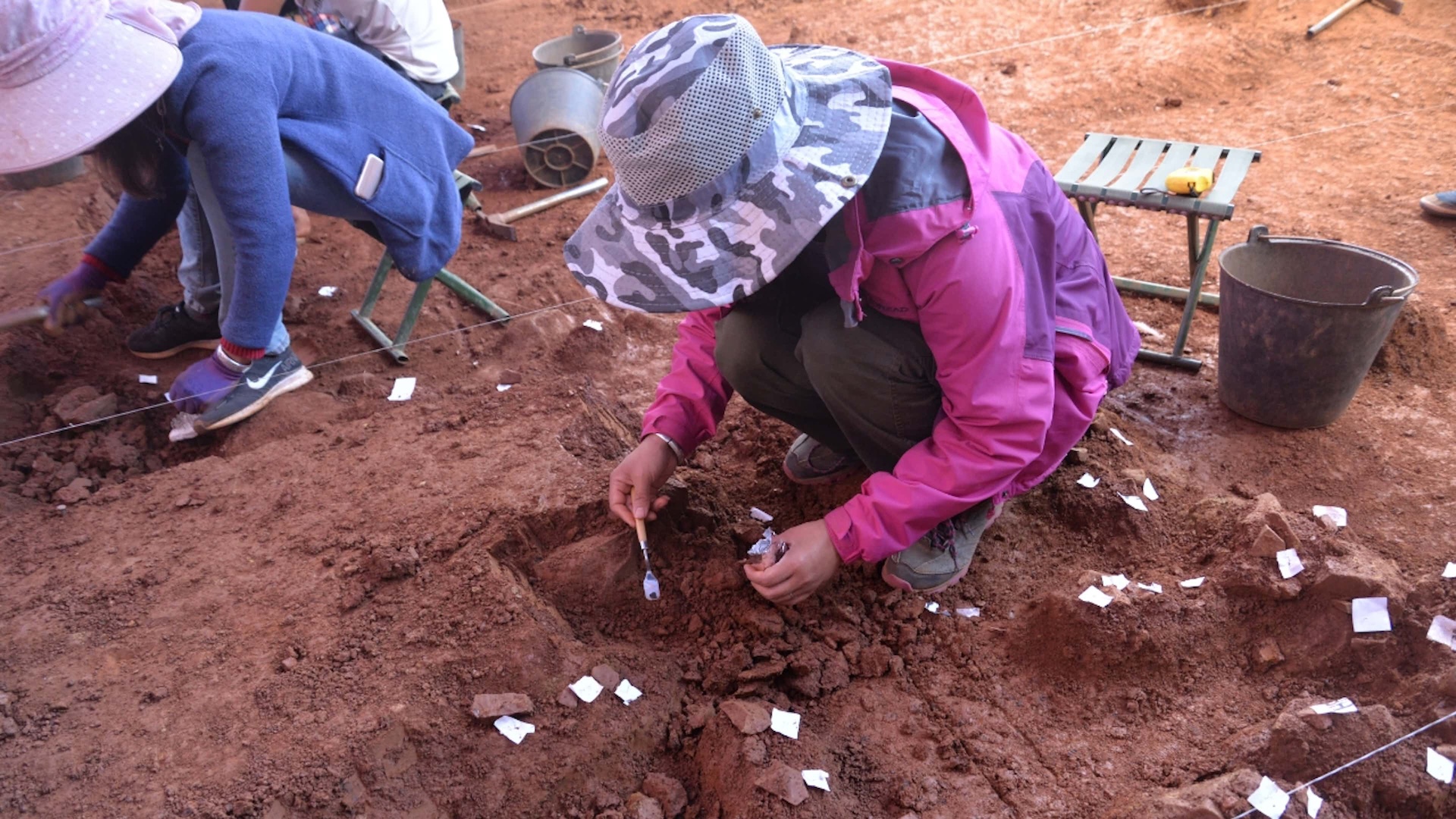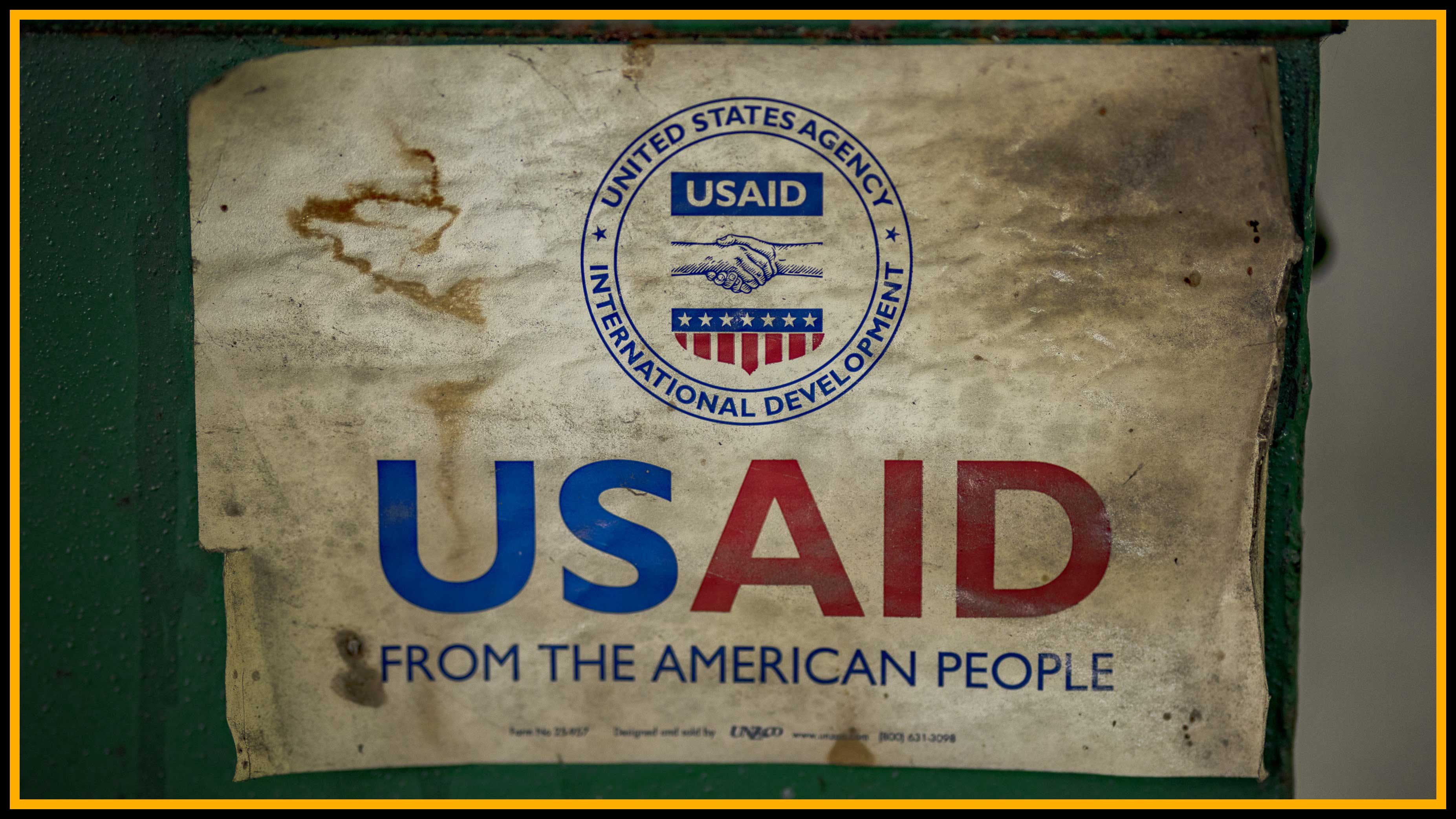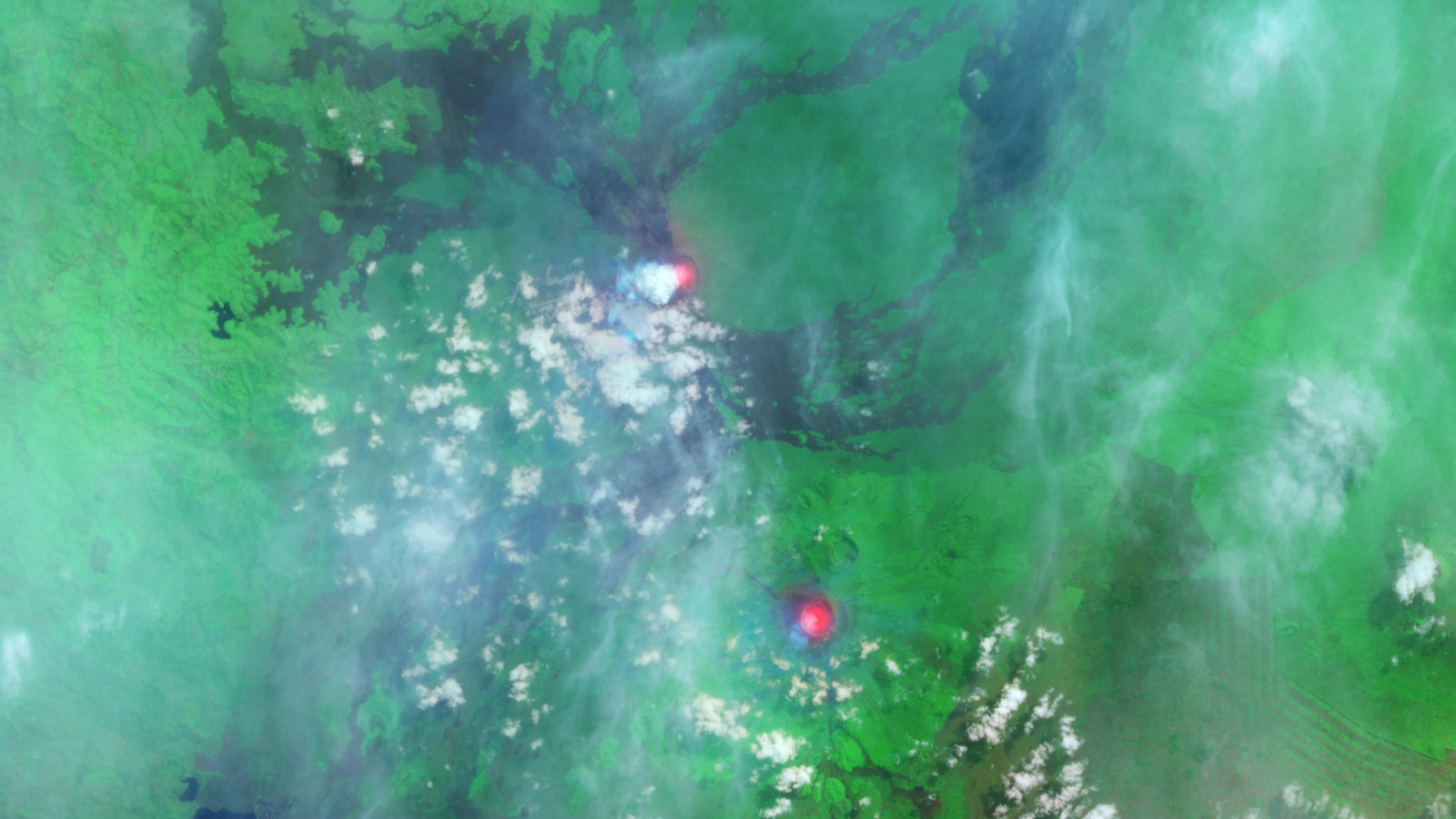Who Stood Up for Science in 2014? (Op-Ed)
Aaron Huertas is a science communications officer at the Union of Concerned Scientists (UCS), where he helps scientists represent their work to the public and policymakers. This article is part of UCS's 'Got Science?' series. Huertas contributed this piece to Live Science's Expert Voices: Op-Ed & Insights.
While partisanship and rancor have polluted public discussions about science at the national level, an inspiring number of scientists, community groups, and even comedians stood up for science over the past year. To laud their efforts and recognize what they accomplished, here are the UCS picks for 2014's "Got Science" Champions:
Andrew Whelton: Driving science into the West Virginia water crisis
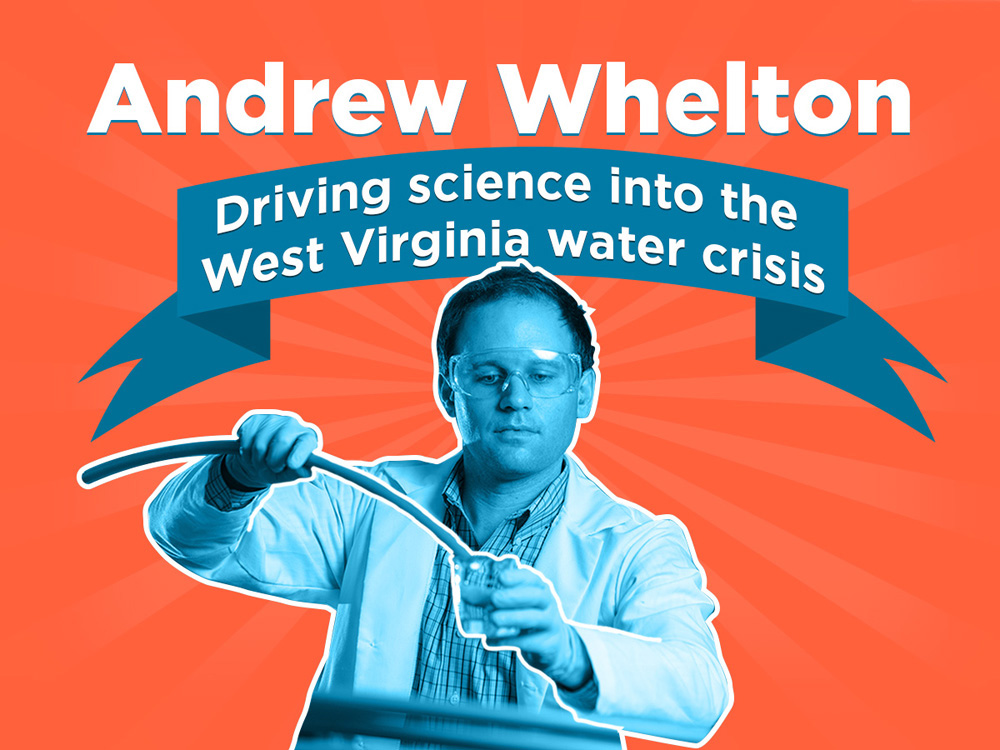
Andrew Whelton is an environmental engineer at Purdue University. When Freedom Industries spilled chemicals into West Virginia's Elk River in January, 300,000 people suddenly found themselves without access to safe tap water. Whelton drove his student and faculty team nearly 900 miles to help, and they did so as volunteers, without the promise of funding for their work.
The public health crisis was immediate: Schools and businesses were closed and people were reporting illnesses related to the spill. There was also an information crisis. While federal and state emergency responders swung into action, their water safety advice left many residents confused.
Whelton and his group teamed up with local nonprofits to test people's water. They found that the recommended method for flushing a home's pipes wasn't helping: instead, it was making people ill. After modifying the method, his team spent days on the ground flushing water pipes and educating residents.
West Virginians took notice. The state's governor, Earl Ray Tomblin (D), tapped Whelton to develop a new scientific investigation, including independent testing of the toxic chemical. Whelton says his student and faculty team continues to make important discoveries, which he takes care to make accessible to local residents by posting information online, offering public talks and one-on-one discussions.
In the middle of a crisis, people need reliable information. That's especially true when it comes to chemical accidents, and Whelton and his team selflessly stepped in to provide it.
Karen Wolk Feinstein: Helping grandmothers act as science ambassadors
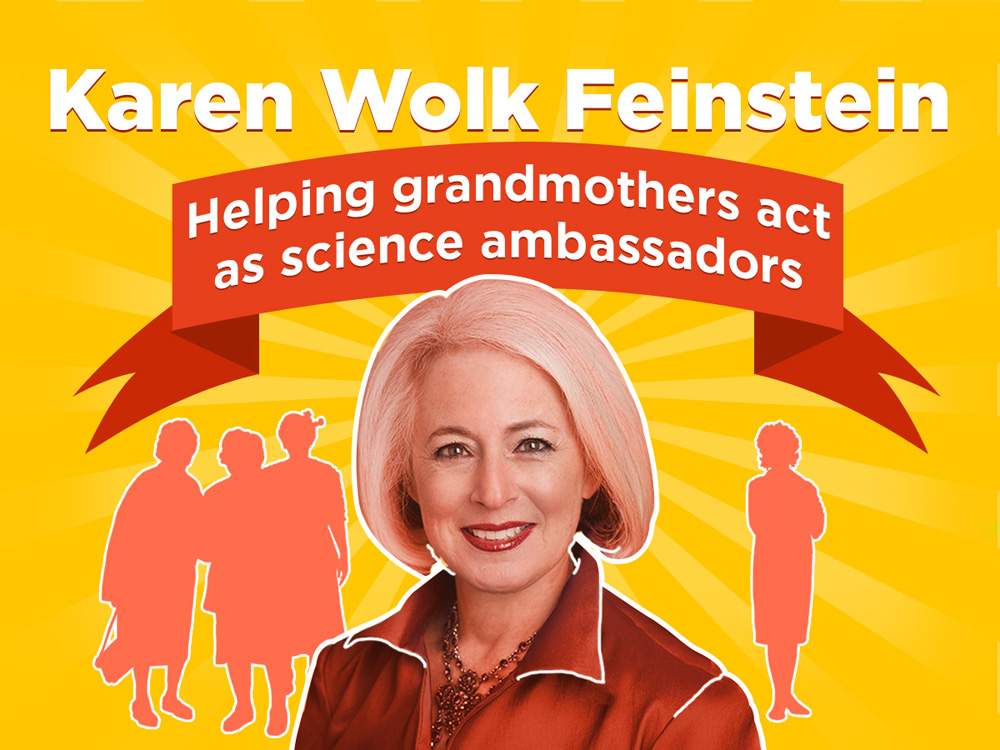
Karen Wolk Feinstein, president and CEO of the Jewish Healthcare Foundation, was inspired to create a local chapter of Grandmother Power — a global movement of grandmothers who help improve their communities after seeing a museum exhibit about the group. She also knew which issue she wanted to focus on: the need to vaccinate against HPV , the human papillomavirus, a sexually transmitted disease linked to cervical and throat cancer.
Many grandparents remember what it was like before vaccines freed people from polio, measles and other diseases. Now Feinstein is working with grandmothers to help them educate their children and grandchildren about the benefits of vaccinating children against HPV before they become sexually active.
"It's kind of tragic that we've had this big breakthrough and people aren't aware," she said.
Feinstein sympathizes with parents who might find it difficult to prioritize getting their children the vaccine given everything else on their plates. She says many parents also assume their children will become sexually active much later than they actually do.
Feinstein expects that grandmothers, with their credibility, wisdom and experience, can give parents the extra push they need to vaccinate their children. Indeed, they may prove to be a key ally for scientists who want to prevent new infections.
David Hastings: Proving politicians don't need to be scientists to understand climate impacts
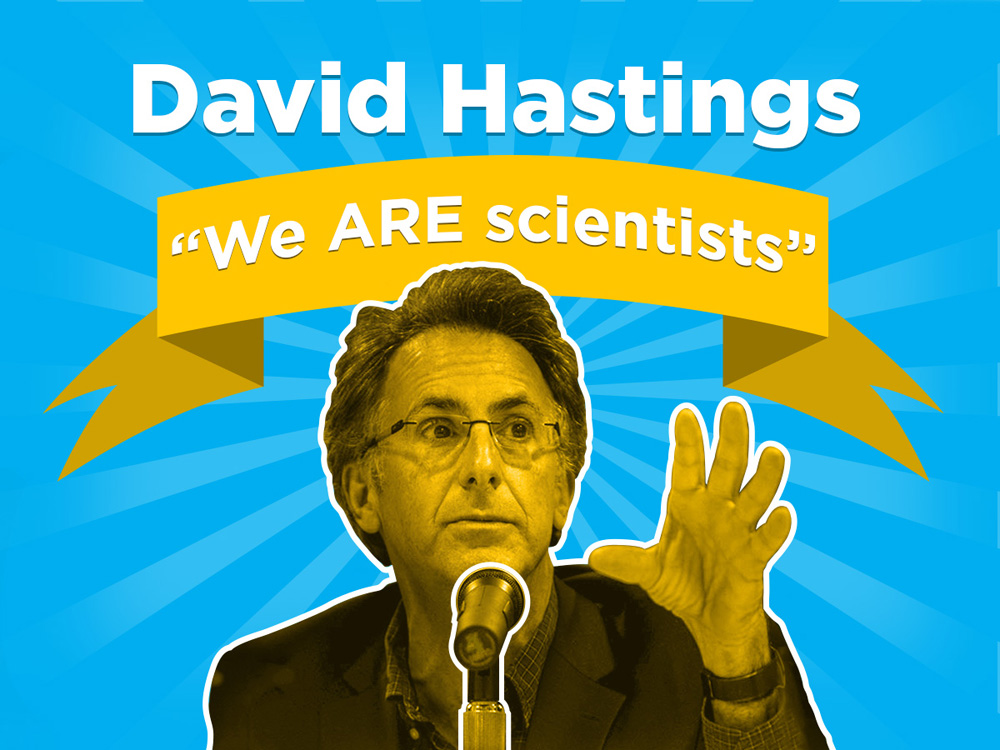
This year, politicians' favorite way to avoid answering questions about evolution, fracking and climate change seemed to be: "I'm not a scientist" — as though that somehow disqualified them from having to address an issue.
One of the elected officials ducking climate-related questions in this way was Florida Governor Rick Scott, who leads a state on the frontline of a climate-driven rising sea level . Thankfully, Florida is also home to scores of scientists who study climate change. One of them, David Hastings, a marine science professor at Eckerd College, joined with several other researchers to respond directly to Gov. Scott. "We are scientists," Hasting and his colleagues wrote, "and we would like the opportunity to explain what is at stake for our state."
The effort paid off. Gov. Scott agreed to meet with Hastings and four other climate scientists, and afterward, he changed his tune, at least somewhat. Instead of arguing with other politicians about whether or not climate change is real, Gov. Scott has started arguing about solutions.
By speaking (scientific) truth to power, Hastings and his colleagues helped align the political discussion in Florida with scientific reality.
Kathy Miller: Giving students the facts about human-caused climate change
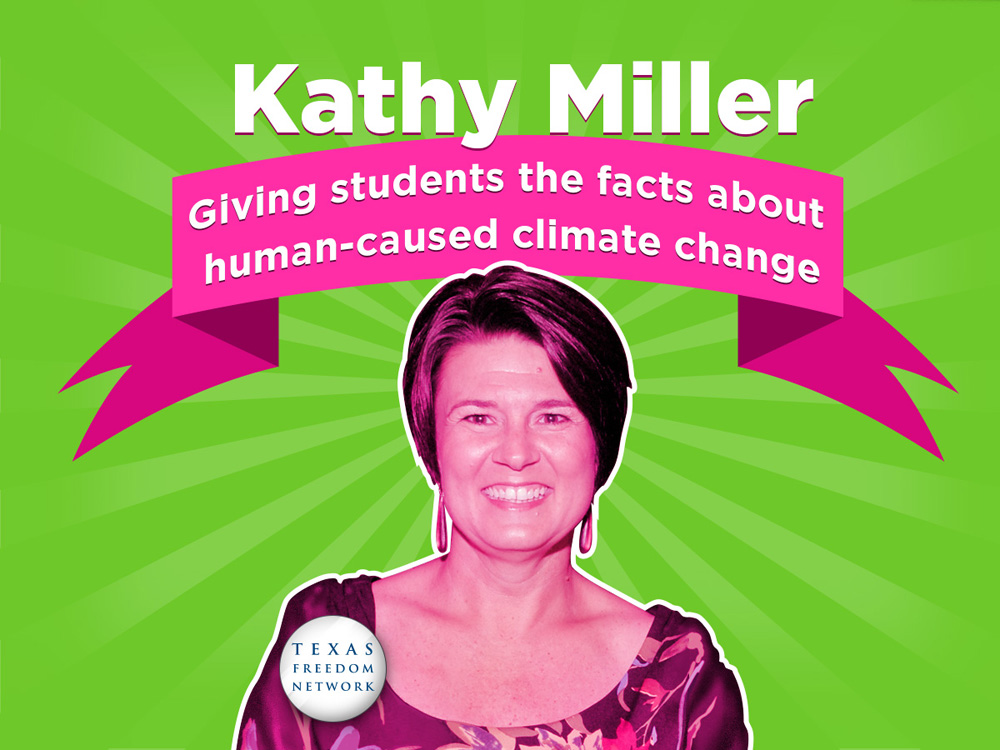
Misinformation about science creeps into public discourse from many quarters, but nowhere is it more insidious than when it winds up in children's textbooks. Kathy Miller, president of the Texas Freedom Network (TFN), helped take on the issue when several major publishers included misleading information that cast doubt about climate science in textbooks they submitted before the Texas State Board of Education. That came just months after Miller's group successfully defended the teaching of evolution in Texas public schools. This year, TFN teamed with the National Center for Science Education and leading climate scientists from Texas, including Camille Parmesan, a University of Texas at Austin professor, and Texas Tech's Katherine Hayhoe, to fight back with a focused grassroots and media campaign as well as a petition drive that garnered some 116,000 signatures. [IPCC Report: Strongest Case Yet for Human-Caused Global Warming ]
Thanks to those efforts, all of the publishers — including big publishing houses Pearson and McGraw-Hill — agreed to remove or correct passages that inaccurately cast doubt on climate science.
By standing up to a state educational system that too often emphasizes the demands of politicians instead of the recommendations of credentialed scientists, Miller helped ensure that kids learn the facts on this vital issue — and not just in Texas, since publishers often sell the textbooks they write for Texas to schools across the country.
Celebrity Champion: John Oliver, curing misinformation with laughter
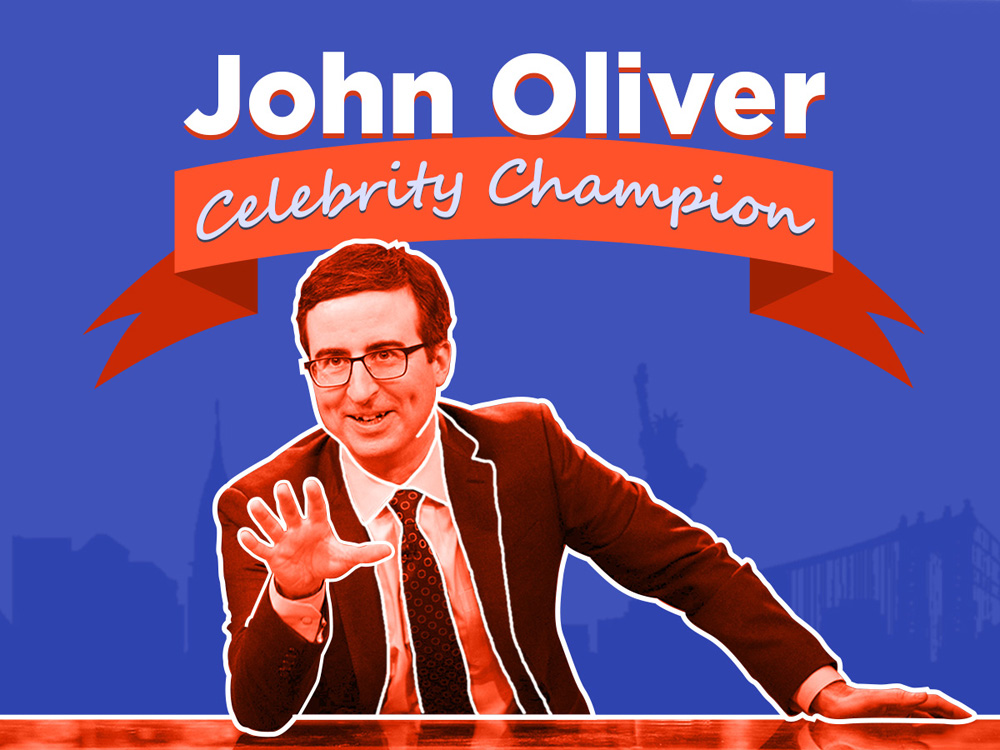
Late night comedy shows aren't usually known for their scientific acumen. But John Oliver's Last Week Tonighton HBO has delivered some especially devastating and hilarious critiques of powerful institutions and people who ignore scientific risks.
One of his most popular segments — with more than 4.5 million views on YouTube — lambasted televised debates about established climate science. As Oliver noted, 97 percent of relevant scientific papers find that climate change is happening and caused by human activities. Televised debates in which a science communicator squares off against a contrarian make it look more like a 50-50 proposition, he argued.
To powerfully demonstrate how silly those debates are, Oliver staged a "statistically representative climate change debate." In it, hepitted Bill Nye "The Science Guy" and 96 scientists against three contrarians in a crowded studio. As the scientists all spoke at once, Oliver yelled, "I can't hear you over the weight of scientific evidence! This whole debate should not have happened!"
It was funny, but did it change minds? It's hard to say. But since Oliver's segment aired, the three major broadcast networks and CNN have not aired any misleading debates about climate science.
We can all stand up for science
Often, people who embrace science feel despondent when they look at how society is responding, or failing to respond, to scientific advances: Politicians are still arguing about whether or not climate change is real, after all, and far too many people aren't able to take advantage of vaccines that can prevent terrible diseases.
But these champions, along with the men and women we highlighted in 2013, show that science can and does matter for people's lives. And even when the national political scene seems too far removed from reality, people's ability to bring science to bear at the local and state level remains strong.
Science rarely speaks for itself, especially on contentious issues. But science remains the most powerful tool people have for understanding the world around us. That's why we need to stand up for it; and that's why these champions are so inspiring.
Follow all of the Expert Voices issues and debates — and become part of the discussion — on Facebook, Twitter and Google+. The views expressed are those of the author and do not necessarily reflect the views of the publisher. This version of the article was originally published on Live Science.
Sign up for the Live Science daily newsletter now
Get the world’s most fascinating discoveries delivered straight to your inbox.
Why is yawning contagious?
Scientific consensus shows race is a human invention, not biological reality



